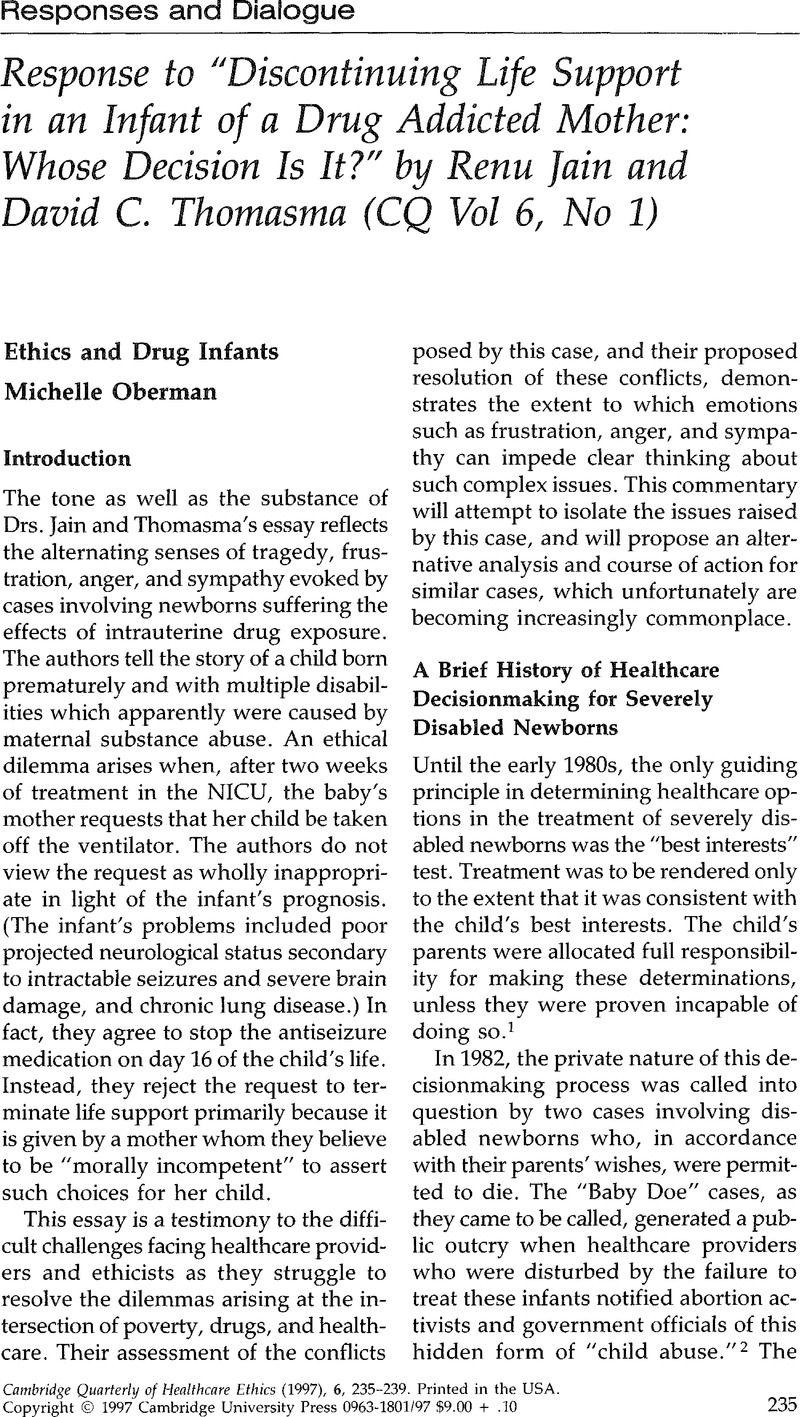No CrossRef data available.
Article contents
Response to “Discontinuing Life Support in an Infant of a Drug Addicted Mother: Whose Decision Is It?” by Renu Jain and David C. Thomasma (CQ Vol 6, No 1)
Published online by Cambridge University Press: 29 July 2009
Abstract

- Type
- Responses and Dialogue
- Information
- Copyright
- Copyright © Cambridge University Press 1997
References
Notes
1. Robertson, JA. Legal aspects of withholding treatment from handicapped newborns: sub stantive issues. International Journal Health Ser vices 1986;11(2):215–30.Google Scholar
2. See note 1. Robertson, 1986.Google Scholar
3. Bowen v. American Hospital Association, 476 U.S. 610 (1986).Google Scholar
4. The earliest case describing the state's power to restrict parental control over their children, known as the state's role as parens patriae, is Prince v. Massachusetts, 321 U.S. 158 (1944).
5. There arex at least two reasons that militate against terminating parental rights on the sole basis of the use of illicit substances during preg nancy. First, because of the chronically over worked and underfunded conditions of state child welfare agencies, children do not neces sarily find safe and stable homes in foster care arrangements. Second, those who work with substance abusing women report that this population is uniquely motivated to quit their ad dictions in the months surrounding the birth of a child. Therefore, by stripping her of cus tody, the state simultaneously removes the mother's incentive to stop using drugs, and of ten plunges her into a depression that results in increased drug use, and, in fairly short or der, another pregnancy. Clearly, a middle ground, such as a supervised custody situa tion, coupled with a drug rehabilitation pro gram, would be more beneficial to mother and baby alike.




